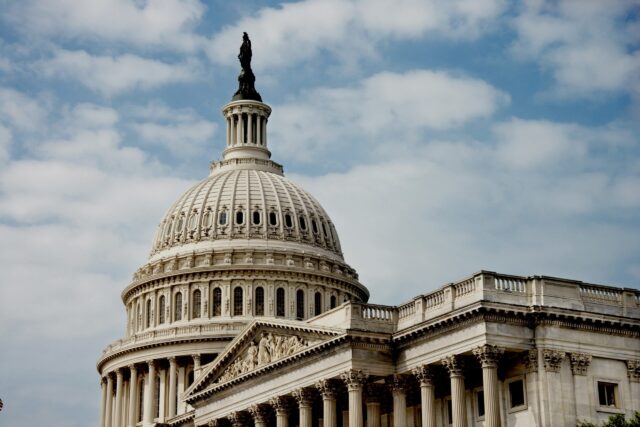Politicians are playing a dangerous chess game of brinksmanship and bluster. Ultimately, the risk of a blunder will bring an end to their silliness.
If history is any guide on the debt-ceiling saga playing out currently, a few things are likely to happen in the coming days, weeks, and months. We wrote (see “Thinking The Unthinkable, Again”) about the debt-ceiling saga back in January of this year, but the issue is heating up again.
First, gamesmanship, brinksmanship, and political chess will mean that this could be a nail-biter, and it will be great fodder to feed the media fear mongers. However, the debt-ceiling impasse will ultimately be resolved, with the ceiling getting raised. The odds of a U.S. default are so infinitesimally small that even saying the words seems like a waste of breath. No doubt, some behind-the-scenes deals about the future budgets are already getting done, and we will never know about them. We have heard, however, that for both procedural and calendar-driven reasons, wrapping up talks by early June may be a stretch.
Therefore, if an agreement won’t or cannot be reached soon – the Speaker of the House has an appointment with the White House on May 9th specifically to address the issue – the higher likelihood is that a stop-gap agreement will be created, or even a series of them. The net effect of this is kicking the can down the road. There is precedent for such a scenario. The practical effect is that it buys more time for both sides of the table to continue their game of political chess, but now with higher stakes and urgency. However, it will also be a time where politicians get a taste of the danger of playing such a game.
They, and we, should expect volatility in both stock and bond markets to increase markedly. We are already seeing volatility in the bond market at its highest since the Great Financial Crisis of the 2008, due in large part to this political posturing. While the U.S. stock markets have been rallying through much of 2023 and during debt-ceiling handwringing (the S&P 500 was up over 9.0% through the end of April and growth stocks are up double digits), Wall Street’s focus has been on the very encouraging earnings and revenue surprises related to the first quarter. This generally sanguine mood could change rapidly if rhetoric about default takes a notch upwards. There is nothing like a stock market scare, however short-lived, to get negotiators back to the negotiating table with sharpened pencils.
Either way, though, our strong – very strong — belief is there is going to be a negotiated extension into the fall. And by fall, markets and voters will tire of scare tactics and will demand a deal; the threat of Social Security cuts or a humiliating default would lead to an agreement by the second half of the year.
As it relates to an investment strategy, this is what we are doing, and more importantly, what we are not doing:
• First and foremost, we are not doing anything in the coming days, weeks, and months believing we can dodge and weave around this likely volatility. Trying to perfectly sidestep this short-term, politically driven volatility is truly a fool’s errand for anybody, and excruciatingly truer for taxable investors as each trade, in and out, has a tax toll.
• Second, should volatility increase markedly, we would recommend using this opportunity to harvest losses and bank them for future use. For many in high-tax states that are staring at short-term capital gains tax rates as high as 56.8% — hello, Massachusetts—these bankable tax offsets are extremely valuable.
For our clients that are currently engaged in dollar-cost-averaging programs, increased volatility would trigger our recommendation to accelerate deployment of cash, to take advantage of cheaper prices.
• Volatility also presents opportunities for tax-efficient strategic rebalancing.
• Finally, we are recommending clients move to money market funds instead of rolling T-bills, especially if they think they have some large cash flow needs in the coming three to six months.
As the quote above indicates, both parties may have all sorts of creative strategies to play, thinking they can “win.” However, the risks of serious political and economic blunders multiply with each passing day, and the markets will tell them so in no uncertain terms. And they will ultimately listen, resolving their differences, raising the debt ceiling, and calming the markets.
About Pete Chiappinelli, CFA, CAIA, Chief Investment Officer
Pete is Chief Investment Officer at the firm. He is focused primarily on Asset Allocation in setting strategic direction for client portfolios.
This report is the confidential work product of Ballentine Partners. Unauthorized distribution of this material is strictly prohibited. The information in this report is deemed to be reliable. Some of the conclusions in this report are intended to be generalizations. The specific circumstances of an individual’s situation may require advice that is different from that reflected in this report. Furthermore, the advice reflected in this report is based on our opinion, and our opinion may change as new information becomes available. Nothing in this presentation should be construed as an offer to sell or a solicitation of an offer to buy any securities. You should read the prospectus or offering memo before making any investment. You are solely responsible for any decision to invest in a private offering. The investment recommendations contained in this document may not prove to be profitable, and the actual performance of any investment may not be as favorable as the expectations that are expressed in this document. There is no guarantee that the past performance of any investment will continue in the future.




